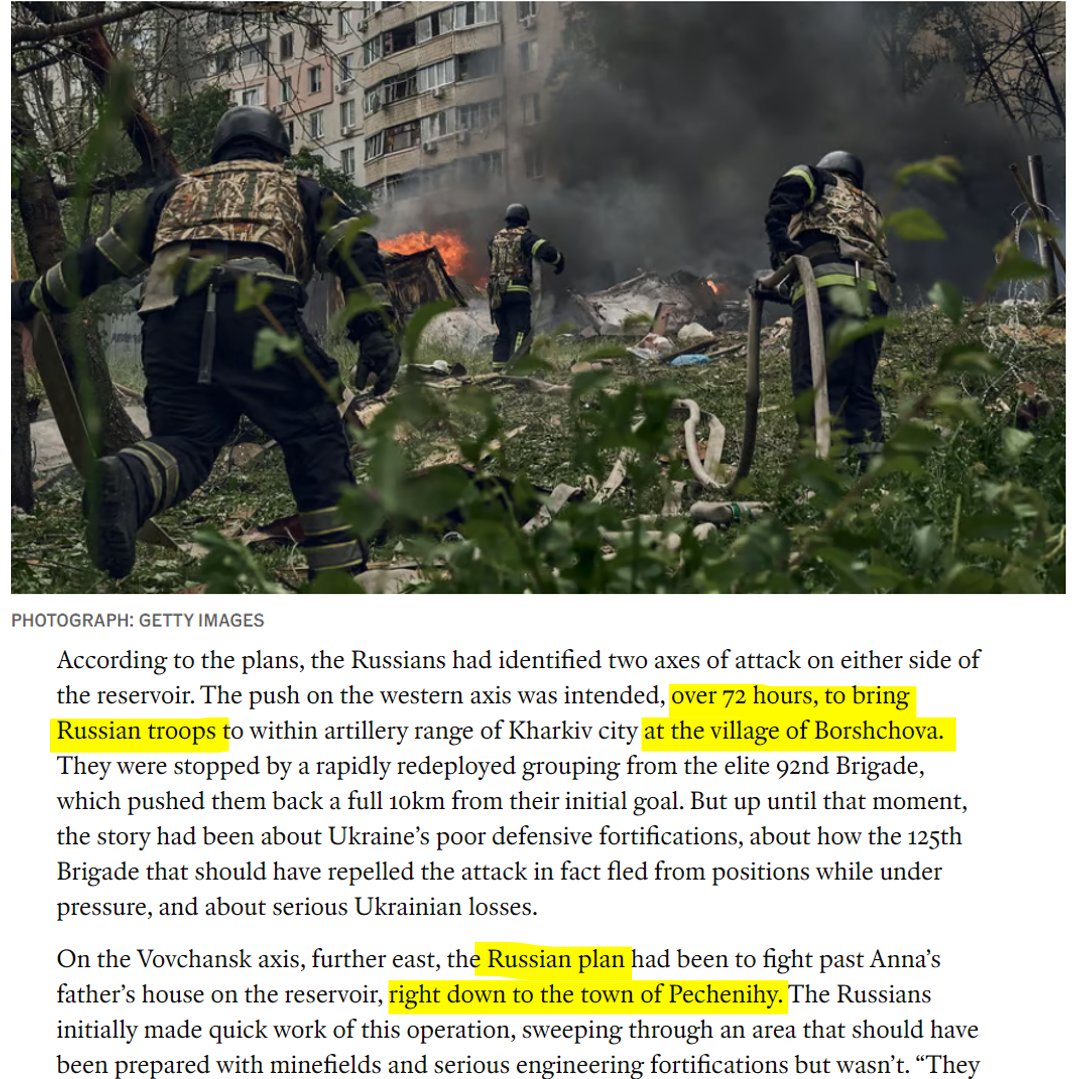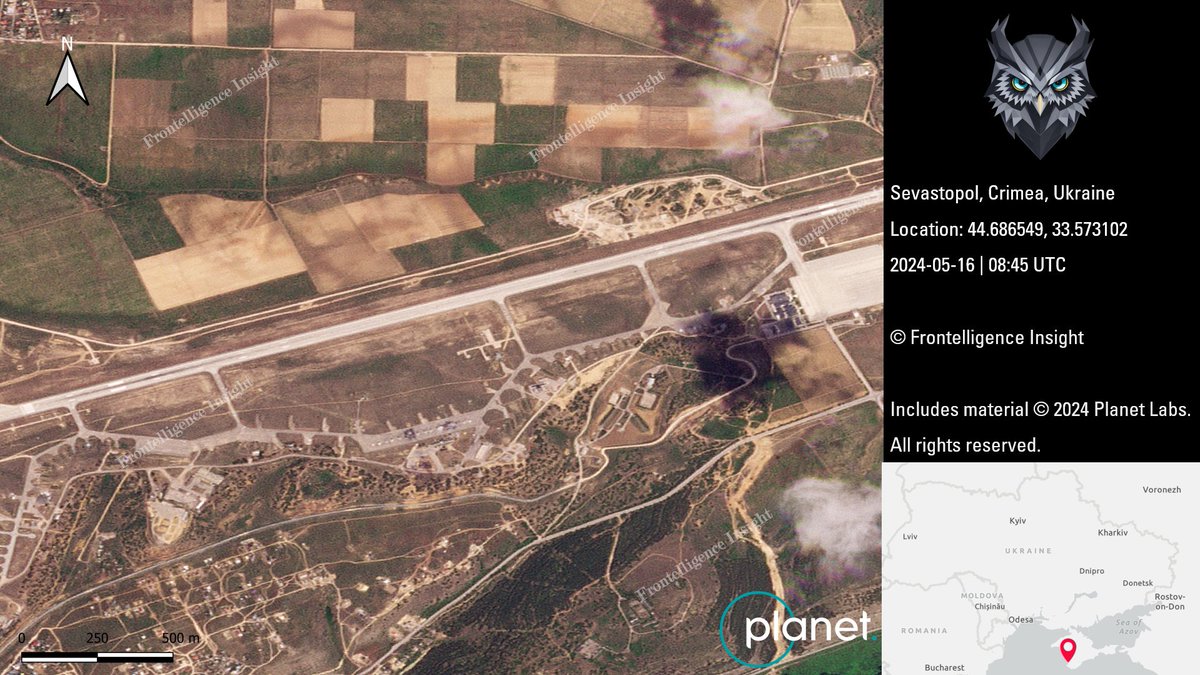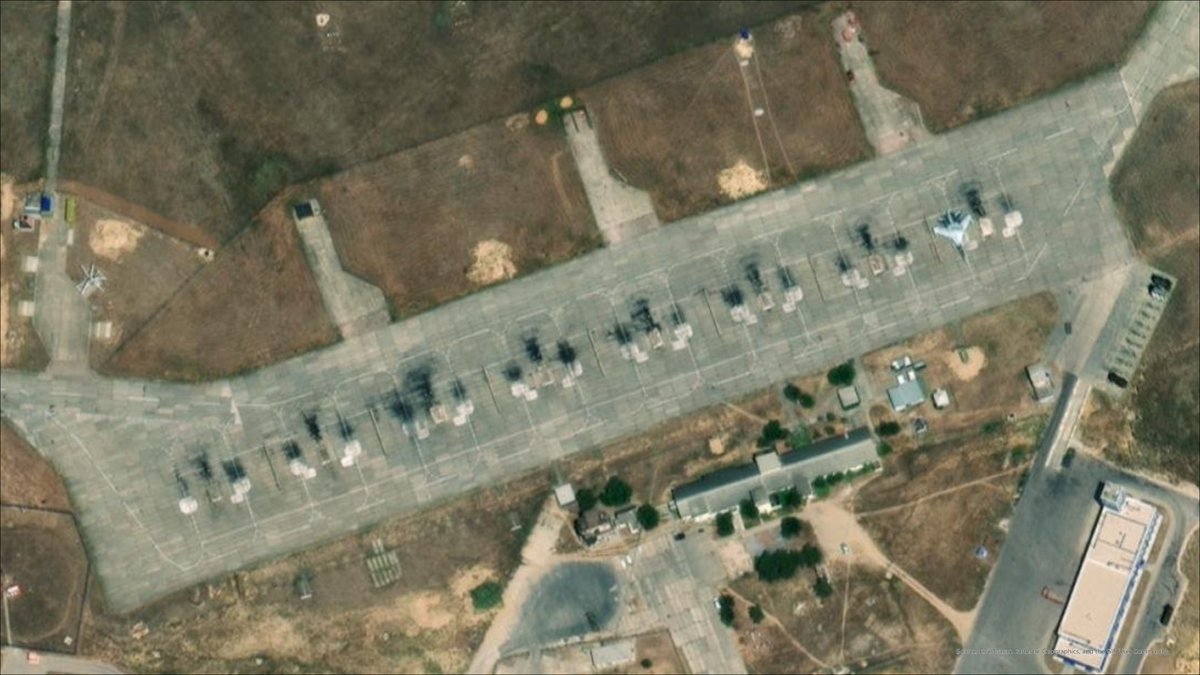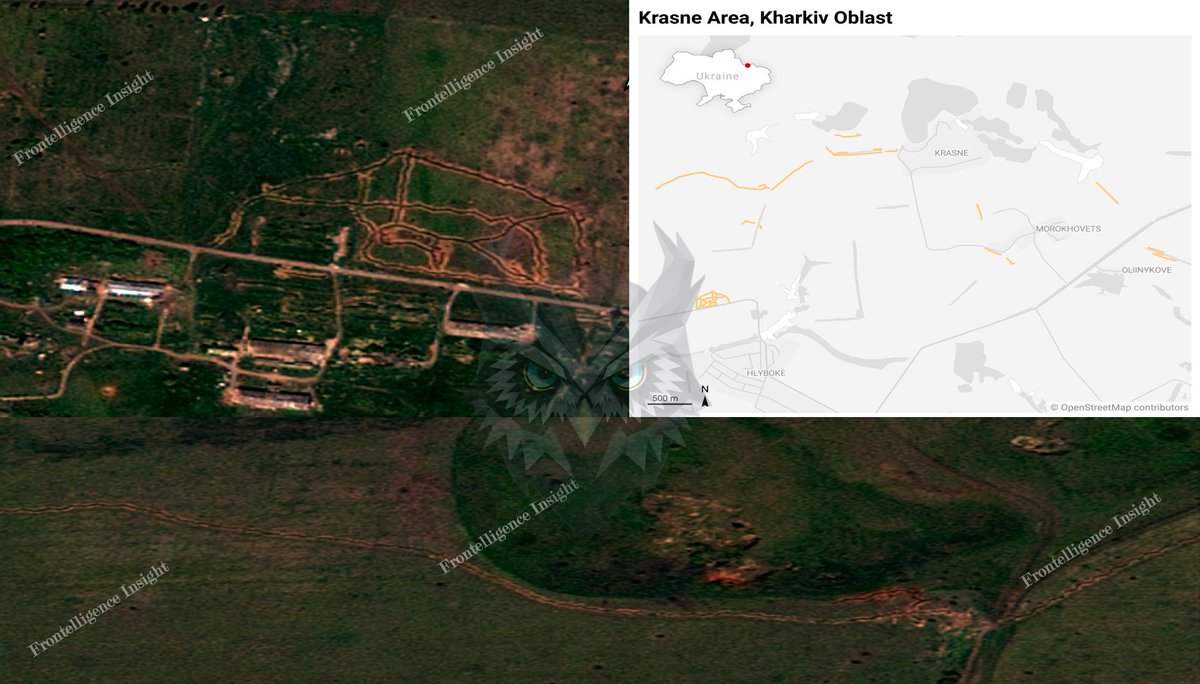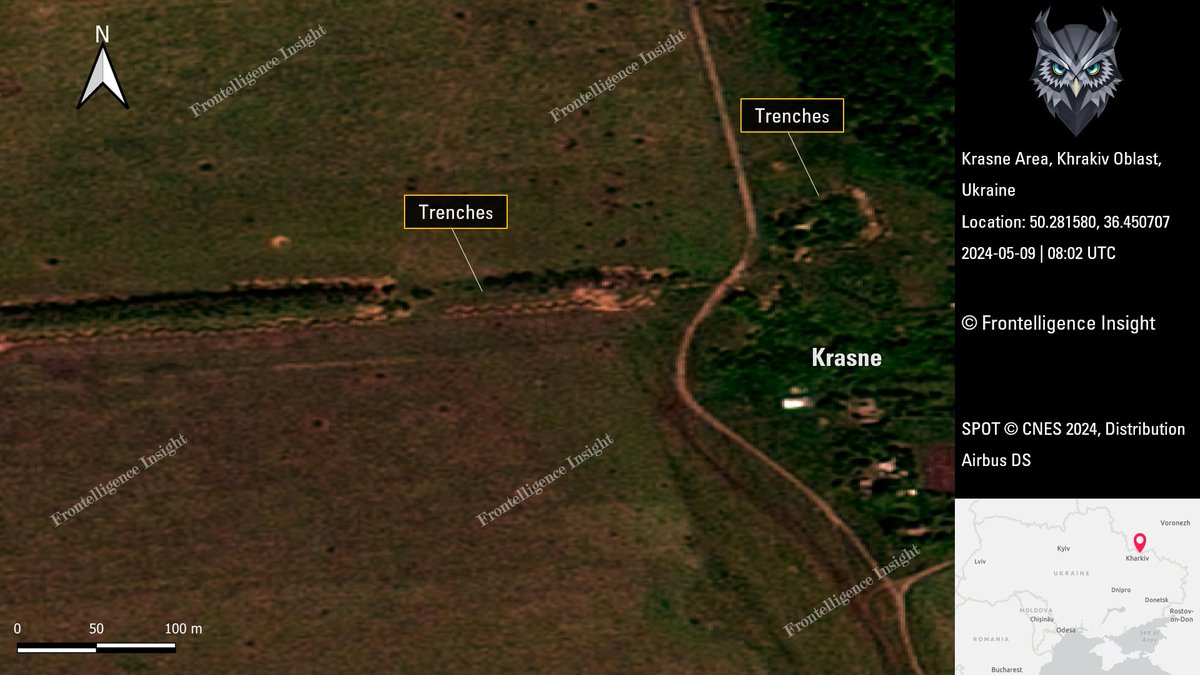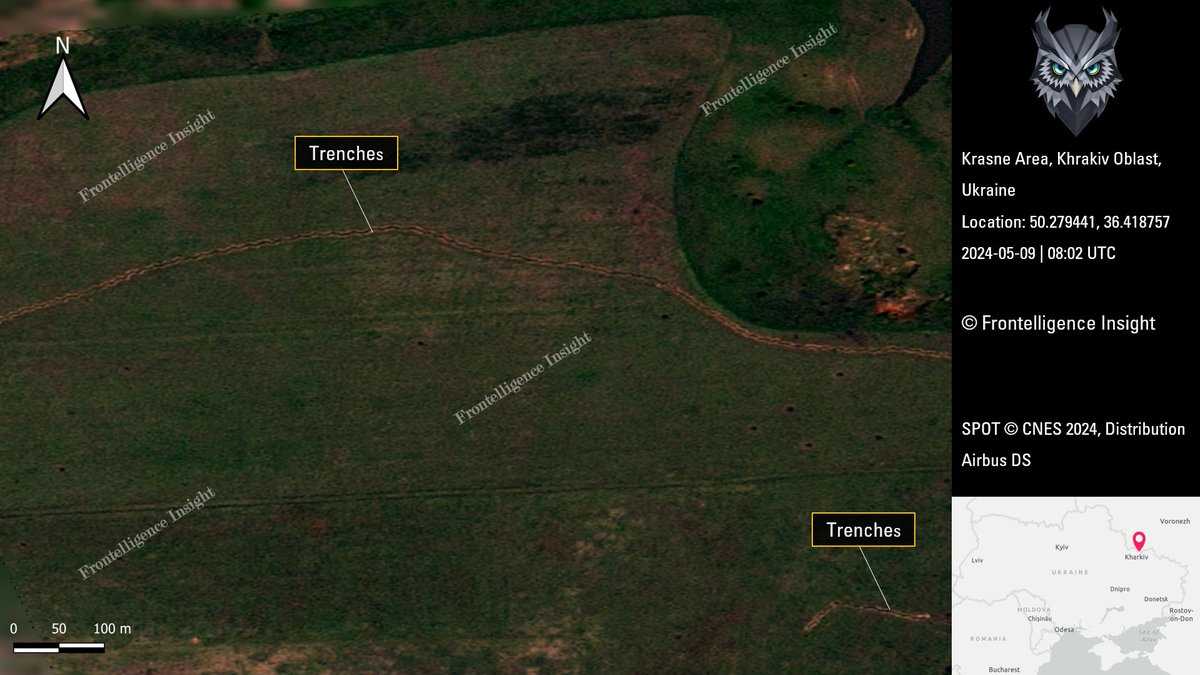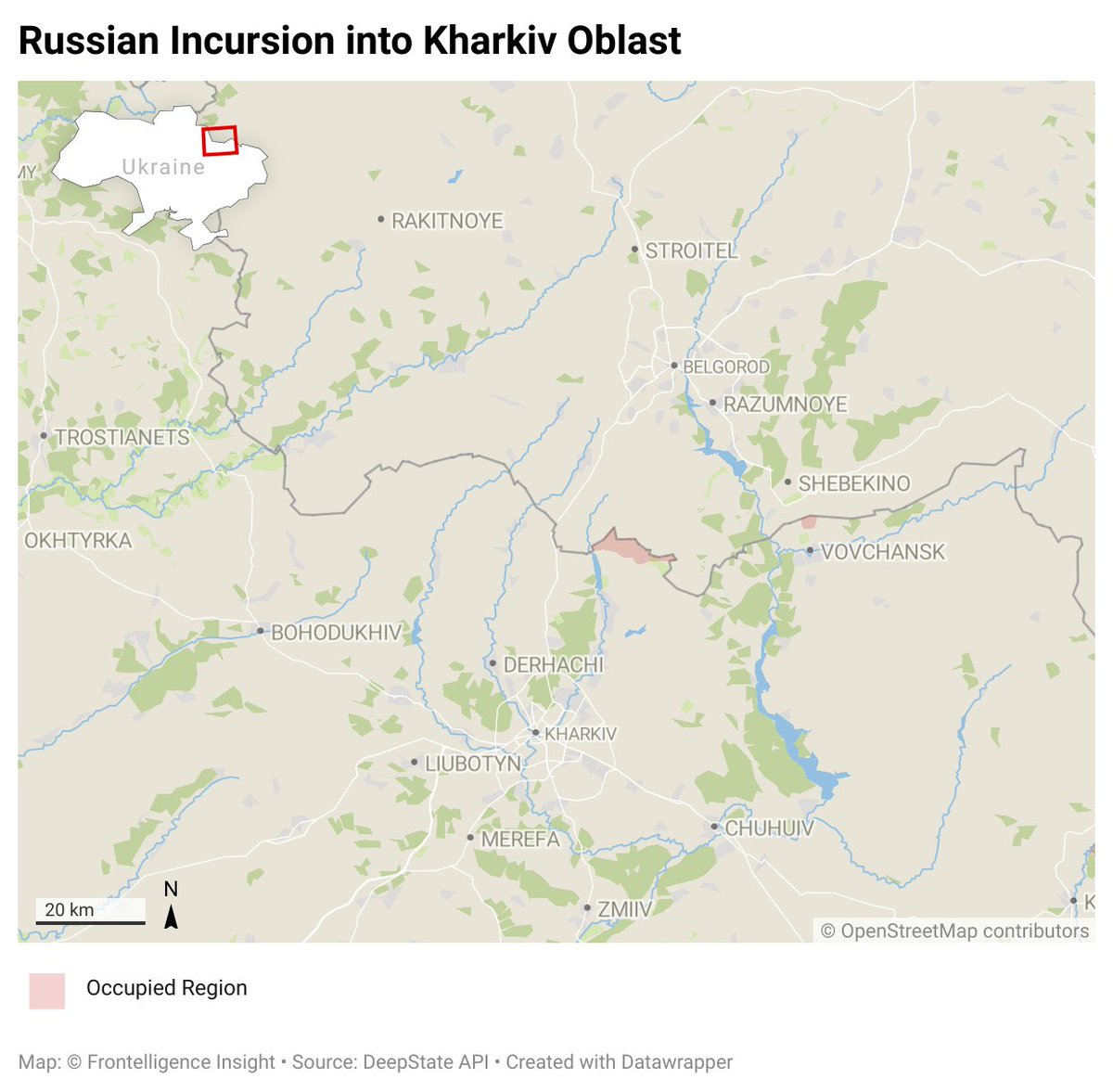Donbas Area Situation Report: May 21-22
The frontline remains dynamic despite appearing static. Ukrainian forces reinforced Kharkiv to halt the Russian advance. The situation is still risky considering the thinned defenses. 🧵Thread
Before proceeding, please like and share
The frontline remains dynamic despite appearing static. Ukrainian forces reinforced Kharkiv to halt the Russian advance. The situation is still risky considering the thinned defenses. 🧵Thread
Before proceeding, please like and share

2/ Chasiv Yar
Russia identified weak points in the Kanal quarter, deploying infantry deep but failed to establish a foothold, and assaulting forces were eliminated by Ukrainian forces. Another attempt can be more successful, as Russians have additional forces available.
Russia identified weak points in the Kanal quarter, deploying infantry deep but failed to establish a foothold, and assaulting forces were eliminated by Ukrainian forces. Another attempt can be more successful, as Russians have additional forces available.

3/ Russian troops made minor tactical gains in the northern axis towards Chasiv Yar, from the Kalynivka area. Progress on the northern flank is still slow, despite initial efforts to reach the area quickly with a land bridge over the canal.
4/ South of Bakhmut
Russia periodically claims control of Klishchiivka, but it lies in ruins with no intact structures. It has been a grey zone for a while, which Russian tactical groups occasionally try to control but are eliminated by Ukrainian defenders on higher ground
Russia periodically claims control of Klishchiivka, but it lies in ruins with no intact structures. It has been a grey zone for a while, which Russian tactical groups occasionally try to control but are eliminated by Ukrainian defenders on higher ground

5/ The situation is marked by daily Russian assaults yielding small results. The frequent rotation of Russian forces may eventually lead to outcomes favoring them. While the area isn't immediately threatened with capture, the situation is gradually tilting in Russia's favor
6/ Ocheretyne
Ocheretyne has received little mention recently, our team deems it one of the most dangerous fronts presently. Russian forces have amassed troops in the area, indicating intentions for further advancement either north of Ocheretyne or northwest toward Vozdvyzhenka
Ocheretyne has received little mention recently, our team deems it one of the most dangerous fronts presently. Russian forces have amassed troops in the area, indicating intentions for further advancement either north of Ocheretyne or northwest toward Vozdvyzhenka

7/ The Solovyove area south of Ocheretyne is unstable, with Russians advancing tactically. Analysis shows that where Ukrainian artillery is scarce, Russian gains increase, indicated by reduced shelling or concentrated forces in staging areas.
8/ Krasnohorivka - Kurakhove area
Russian forces intensified assaults in Krasnohorivka with mechanized units, but gains were mostly limited. Since the Kurakhove area is well fortified, quick Russian advances are not expected. Yet, the threat of losing Krasnohorivka is high
Russian forces intensified assaults in Krasnohorivka with mechanized units, but gains were mostly limited. Since the Kurakhove area is well fortified, quick Russian advances are not expected. Yet, the threat of losing Krasnohorivka is high

9/ Summary
Zooming out, it's clear that Russians haven't achieved significant operational results in this offensive yet. Despite multiple tactical successes, there is no frontline collapse. Our team observes the movements of Russian reserves, suggesting their availability
Zooming out, it's clear that Russians haven't achieved significant operational results in this offensive yet. Despite multiple tactical successes, there is no frontline collapse. Our team observes the movements of Russian reserves, suggesting their availability
10/ With Russia having reserves and vehicles for offensive operations, we shouldn't expect a reduction in their offensive pressure despite losses soon. Russian forces maintaining a presence in areas like near Sumy Oblast suggests the offensive hasn't peaked yet
11/ For more comprehensive details, the full report is freely available on our website. Simply visit the site for further information:
frontelligence.substack.com/p/donbas-situa…
frontelligence.substack.com/p/donbas-situa…
12/ Thank you for taking the time to read my thread! If you enjoyed it, I would greatly appreciate it if you could consider liking and sharing the first message of the thread to help boost its visibility. You can also support us via tips:
https://x.com/Tatarigami_UA/status/1786083223698637043
• • •
Missing some Tweet in this thread? You can try to
force a refresh


